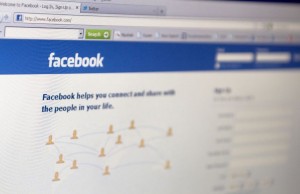By Any Other Name? Why the Facebook Real Name Policy Matters
 Photo by tomxox / 123RF
Photo by tomxox / 123RF No, I’m not going to start waxing un-poetically about roses. I am, however, hoping to continue the conversation being had in many online and offline spaces about identity.
Drag queens and kings, First Nations and indigenous people, domestic violence survivors, political activists in other countries, and trans* people are involved in a very public debate with Facebook about the company’s “Real Name” policy and the way pages are reported for noncompliance with this policy.
The reporting tool currently in place allows people to flag accounts as fraudulent if their owners are not using their legal names. According to the activists of the My Name Is campaign, this is a way to further marginalize the voices of certain groups of people, namely people in the LGBTQ community, Native Americans/indigenous people, and political activists, who may not be able to use their real name for fear of retaliation or because their tribal name is different from their legal name. Meetings began back in the fall of 2014 and received coverage in publications like Vogue.
As Pride month kicked off this month, so did the protests and the continued debate between users and Facebook. The LGBTQ Humanist Council supports the work of the My Name is Campaign to bring greater attention to self-determined identity. The My Name Is Campaign is about more than just an individual’s name on Facebook—it is about the erasure of a community choosing to live a life free of gender stereotypes. The question becomes how to balance this with the need for user accountability online. It’s true that by requiring real names, cyberbullies as well as other criminals, cannot hide behind the anonymity of the Internet. The challenge Facebook and other platforms for digital expression need to meet is how to protect users while respecting that a person’s identity is not fixed nor is an identity solely conferred by government documents. One’s given name can carry the weight of a life and a journey that one may not want to share with the world. Their “real” name is a reminder of the oppression and intolerance they have endured. Caitlyn Jenner’s recent Vanity Fair article and Laverne Cox’s reflection on trans*-related press coverage are bringing the topic of trans* identities to the forefront in a big way.
How do we continue the conversation about identity in the digital age and focus on how to provide spaces for human interaction that are both safe and welcoming to everyone?
And lest we forget, our own Humanist Manifesto III states:
Humanists are concerned for the wellbeing of all, are committed to diversity, and respect those of differing yet humane views. We work to uphold the equal enjoyment of human rights and civil liberties in an open, secular society and maintain it is a civic duty to participate in the democratic process and a planetary duty to protect nature’s integrity, diversity, and beauty in a secure, sustainable manner.
We appreciate Facebook’s willingness to speak with the communities affected and we hope they will find an inclusive solution that balances the need for safety of all with the free expression of self-identity.
What do you think? What’s being said in your community or in the online in the circles in which you travel?
